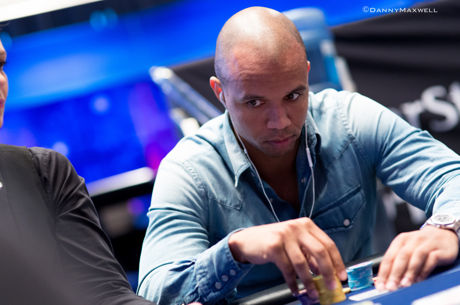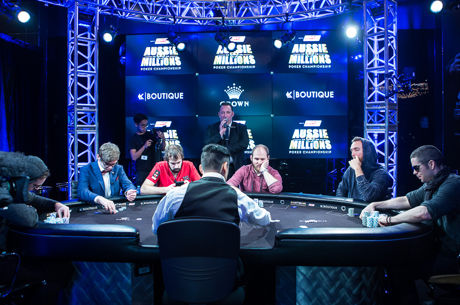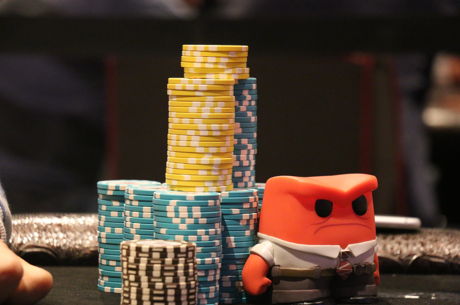You Might Play Poker as Badly As You Drive -- But How Can You Know?
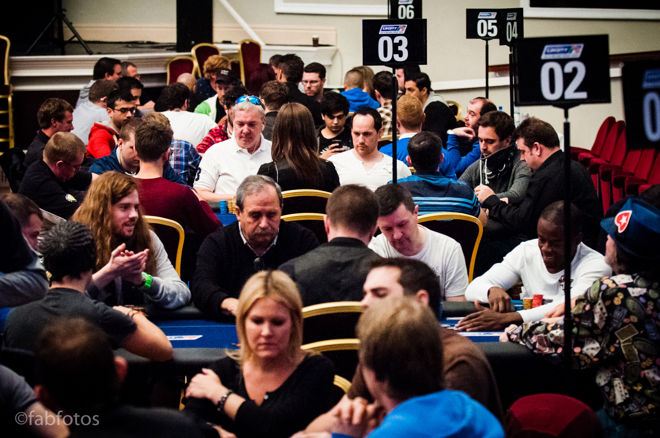
In my last article I mentioned I was reading the fascinating book by Tom Vanderbilt called Traffic: Why We Drive the Way We Do (and What It Says About Us). I continue learning new things on every page. And I continue seeing in those pages useful lessons about poker.
I Am a Good Driver... No, Really I Am
One section of the book is titled, “Why Lack of Feedback Fails Us on the Road.” Most of us have falsely inflated views of our driving ability. This occurs primarily because really we have no objective benchmarks of our performance as drivers.
As Vanderbilt explains, “An Olympic pole-vaulter has a pretty clear indication of how good she is compared to everyone else by the height of the bar she must clear. As for a driver who simply makes it home unscathed from work, how was their performance? A 9.1 out of 10?”
Our negative feedback from driving comes only rarely and haphazardly — the occasional speeding ticket and the even less frequent collision. Worse, the feedback we give ourselves is often completely wrong.
You take a curve too fast on a wet or snowy road, start to spin, apply corrective steering, and get back on track. You’re likely to commend yourself for your NASCAR-worthy ability to prevent a disastrous outcome. You’re unlikely to reach a few seconds further back in memory to chastise yourself for entering that curve at the unsafe speed that set up the drama.
The lesson you take, then, is that you are blessed with cat-like reflexes and you are a super-safe driver, able to prevent crashes that lesser drivers would experience. The lesson you should take, but probably won’t, is that you badly misjudged the limit of your tires’ adherence to a compromised road surface. The result is that you’ll make the same mistake repeatedly in the future — and maybe even push it harder because of your newly enhanced self-image as a skilled driver.
The Goal to Gather More Sophisticated Feedback
Last year my insurance company offered me potentially steep discounts if I could prove that I’m a safe driver, with evidence provided by an electronic minder installed in my car. It keeps track of when, how far, and how fast I’m driving. I get a monthly report card, with old-fashioned letter grades on parameters such as how often I drive at the most accident-prone times of day (rush hour and the middle of the night), how hard I brake and accelerate, and total miles driven, with comparisons to all of their similarly monitored customers.
But this is only middling-quality feedback. It mashes together a month’s worth of driving, rates it with a crude letter-grade scale, and compares me not to all drivers on the road, but only to that small fraction who self-selected into this particular program.
Vanderbilt describes much more sophisticated (and, hence, expensive) systems that continuously video-record both the driver and the road ahead. When sensors detect a meaningful event — say, panic braking or a swerve — the system transmits video clips to a central office, where analysts critique what the driver did wrong. Such systems are primarily used by corporations with fleets of vehicles who want to reduce their accident rate. The feedback is specific, detailed, and rapid. It is also hugely effective at quashing the many unsafe habits that presage the worst and most adverse outcomes — collisions and injuries.
Imagine coming back from making a delivery in the company van, only to be called into the fleet manager’s office to review the videotape of when, 30 minutes earlier, you screeched to a stop just short of another car’s rear bumper. The camera that was trained on you reveals how that incident was preceded by your eyes being off the road for several seconds while you texted some inane chatter to your buddy.
Poker Feedback... Let’s Rewind and Review
Poker feedback sucks as badly as driver feedback. Basically, we have none, except for net outcome of dollars won or lost over some period of time. Most players probably don’t keep the kind of accurate, honest records that will tell them even that much. Which, of course, is precisely why most losing players keep playing, naively believing that they are long-term winners.
As with driving, often the feedback we get is worse than useless. You play your “lucky hand,” and flop a full house to beat the conservative player’s trip kings for a huge pot. Are you likely to be shaken up, think how incredibly lucky you were, and vow never to play that badly again? Or are you more likely to revel in your own cleverness for being such a tricky, skilled player?
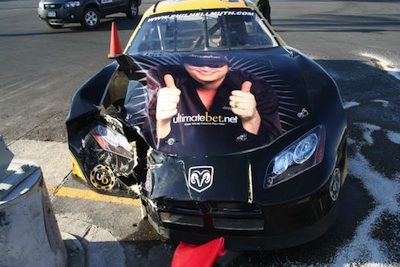
When you play pocket aces aggressively and lose to the schlub who called you down with deuces, catching his set on fifth street, what do you learn? Unless you’re the uncommon one who can analyze the situation dispassionately, you’ll probably decide that playing big pairs aggressively just makes you lose more, so you’ll play more passively next time, and either lose less or be content with winning a small pot.
What if instead you had a remote-monitoring nanny looking over your shoulder, taping everything that happened during your game?
Look! There you are missing that guy’s repeated tell of strength, because a big play was happening in the football game on TV. That will cost you later when he does it again, but you don’t know what it means, and you call because you think he’s bluffing.
Oh, here’s a nice clip of you berating a beginning player for playing badly after he caught an absurdly lucky river card to beat you for stacks. And here’s where it shows him leaving to cash out, both because he’s ahead for once and because your criticism has made him decide that it’s more fun to play craps. Look at all those chips you can no longer win!
Maybe you called three streets on a board of A♥A♦2♣9♣4♠, only to find that A♣6♥ lost your stack to A♠K♠. Your inclination is to think, “Nothing I could have done differently there,” and chalk up the loss to simple bad luck. But the savvy guy at the poker monitoring company reviews the tape with you, and explains how the real root of the problem was calling your opponent’s early-position preflop raise with Ax6x-offsuit. The ensuing loss, he calmly informs you, was as predictable as crashing when you speed at night on a busy interstate while drunk.
Learning How to Find and Use Meaningful Feedback
We can even imagine a more immediate system for poker feedback. Maybe it could be built into something like Google Glass, and instantly flash bright red lights that only you can see. The software detected you playing 5x4x-offsuit from early position because you’re bored. Alert! You’re open-limping again instead of raising. Alert!
I kind of doubt that there’s a fortune to be made with my imagined Poker NannyTM system. After all, it would be expensive and intrusive — not to mention the fact that most poker players don’t really want to be told the truth about how they play. But if you do, similar, real-life options are available to you.
For online play, you really can record entire sessions and hire a coach to review every decision you make. For live play, you can similarly have a coach or a trusted friend watch your play and take notes.
Less comprehensively, you can describe selected hands to a coach. It’s better than nothing, though it has the obvious problem that you’ll probably choose only those hands in which you suspect you played suboptimally, or in which you lost a lot of money. For all of those in which you are unaware that you could have played better, you’ll continue to be blissfully ignorant of your mistakes.
Conclusion
Two-time U.S. Secretary of Defense Donald Rumsfeld once wisely observed, “We… know there are known unknowns; that is to say we know there are some things we do not know. But there are also unknown unknowns — the ones we don't know we don't know. And if one looks throughout the history of our country and other free countries, it is the latter category that tend to be the difficult ones.”
So it is with poker. It’s the unknown unknowns that tend to cost us the most money — sometimes all at once, sometimes just one slow drip at a time. They exist because we have no effective mechanism for feedback on how we play. For the most part, you have only you monitoring you, and most of us are as bad at providing accurate, objective evaluations of our poker play as we are of our driving.
It’s a tough problem, with no easy fixes. Perhaps your best defense is a simple awareness of how bad you probably are at evaluating your own play. Amplifying on a line from The X-Files, I would advise, “Trust no one — especially yourself.”
Robert Woolley lives in Asheville, NC. He spent several years in Las Vegas and chronicled his life in poker on the “Poker Grump” blog.
Want to stay atop all the latest in the poker world? If so, make sure to get PokerNews updates on your social media outlets. Follow us on Twitter and find us on both Facebook and Google+!

